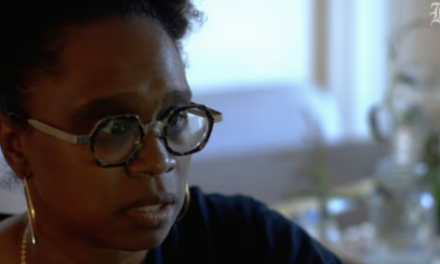Happy Friday! Sign up for the newsletter here.
In this week’s newsletter: Florida Gov. Ron DeSantis versus the College Board. A dire picture for teenage girls’ well-being. The case against covering school shootings. Denver’s struggle with declining enrollment. An ed reporter’s deliciously cringe-worthy Valentine’s Day story.
DESANTIS VS THE COLLEGE BOARD
The big education story of the week.
The big education story of the week is the ongoing conflict between Florida Gov. Ron DeSantis and the College Board, which has morphed from a debate over the new AP African American studies course into an argument over whether or not Florida needs the AP program at all.
So far at least there’s been a lot of saber-rattling and side-taking but relatively little action. But reporters are increasingly asking hard questions of both sides and focusing on those students and teachers who are most immediately affected.
The College Board has repeatedly claimed that the pilot version of the new course wasn’t influenced by DeSantis. DeSantis and his allies have repeatedly claimed victory in forcing the Board to back off — while still saying that they might need to ban the course (NPR, NYT, WLRN, NBC, Vox, WBUR).
Not content to leave it at that — or perhaps sensing the need for something new to keep the pressure on — DeSantis began the week by floating the idea of ending the state’s relationship with the AP program writ large (WLRN, Tampa Bay Times, Miami Herald, and Orlando Sentinel). However, several outlets noted that doing so would be a major reversal for DeSantis and might cause upheaval among schools and students that have long used the courses and tests (USAT, Vox, Washington Post).
The back and forth on the African American studies course has been interminable, and neither side’s case is particularly persuasive to me. However, I really appreciated the Washington Post’s effort to give readers the big picture on Black history studies — AP and otherwise. And reporter Judd Legum’s deep dive into the College Board’s statements is worth reading. (Someone detail the contradictions and conflicts coming from the DeSantis side, please?)
OTHER BIG STORIES OF THE WEEK
MENTAL HEALTH: Results from the annual Youth Risk Behavior Survey paint a dire picture, especially for girls: Nearly 3 in 5 teen girls said they experienced persistent sadness in 2021. One in 3 seriously considered attempting suicide. One in 5 experienced sexual violence. LGBT youth also reported experiencing high levels of violence, depression, and suicidal thoughts (New York Times, Washington Post, The 74, PBS). While the headlines are jarring enough on their own, I appreciate The Atlantic’s piece on the report by Derek Thompson, which looks at some of the reasons why this might be, including the harms of social media.
PARKLAND: Tuesday marked the five-year anniversary of the shooting at Marjory Stoneman Douglas High School that left 17 people dead. A handful of outlets captured what’s happened since, including the lack of action in Florida police departments in devising procedures to stop mass shootings, how the families of victims have coped, and what happened to the school building (WLRN, The 74, AP, Miami Herald). The Washington Post’s John Woodrow Cox discussed the impact of mass shootings on young people.

WHITER, WEALTHIER — & SMALLER
The best education journalism of the week.
The best piece of education journalism of the week is Jessica Seaman’s Denver Post story, Why does DPS have too many schools? Enrollment decline was years in the making — and district saw it coming (above).
According to Seaman’s reporting, Denver Public Schools rejected plans to close schools in anticipation of falling enrollment — and now faces a $9 million budget shortfall.
Enrollment worries began emerging as far back as 2015 — long before the pandemic. But the district failed to act on a proposal to close 10 schools, or even two of them. Current and former district officials don’t agree on whose fault it is — or how best to address it going forward.
While wonky and policy-focused, the piece is detailed, well-reported, and includes strong voices from a variety of perspectives. It tells a vivid story about the boom and bust cycle Denver has experienced, and brings in demographics and housing costs. And as Seaman points out, this is a story that we’re starting to hear in other places. You should definitely check it out.
Other great stories published this week:
‘A nightmare’: How Nebraska’s special education system is failing its students and staff (Omaha World Herald)
In New York state, students can be suspended for up to an entire school year (Hechinger Report)
Virginia 6-year-old who shot his teacher exposes flaws in how schools treat students with disabilities (USA Today)
What Happens When a Dysfunctional District Gets $241 Million? (The 74)
Popping the hood on electrical vehicles, these high school students will be the next generation of auto mechanics and car designers (Colorado Public Radio)
High-paying jobs that don’t need a college degree? Thousands of them sit empty (NPR)
WHY COVER SCHOOL SHOOTINGS?
The latest from us
On the fifth anniversary of the Parkland shooting, I looked back at the many pieces we’ve published about school gun violence and realized that there was a good case to be made that news outlets should stop focusing on school shootings the way they have in the past.
The responses have been strongly worded — and mostly negative. “This is a bad take,” wrote the Detroit Free Press’s Lily Altavena. “Ignoring violence — gun or otherwise — marginalizes children who are already marginalized in this world.”
However, there are a handful of journalists who see the need to reconsider the usual practice. “My instinct says we must cover these stories,” writes reporter and author Amanda Ripley. “But I have to admit: I don’t think it’s helping. And it is definitely hurting.”
Just this week, an MSU student reporter criticized non-local journalists for how they are approaching interviewing students after the shooting.
Thanks to CJR’s inclusion of the piece in its notable reads section — and to the satirical New York Times Education Pitchbot for its LOL tweet, World Still Waiting for Alexander Russo to Have First Good Take.
Follow me at @alexanderrusso for thought-provoking commentary all day, every day.
LESSONS IN SUCCESS FROM HOUSTON
Coverage of promising school innovations & signs of progress
💡 Top-ranked high schools in the Houston area attribute success to data-driven goal-setting with students and adding time to the day for tutoring and studying (Houston Chronicle). Chronicle reporters also dug into post-COVID elementary school rebounds and profiled a girls high school with a 100% graduation rate.
💡 A charter school in Colorado working to keep the Ute language and culture alive sees strong enrollment in its first year (Colorado Sun). See also this piece from EdSource about a Hmong immersion program at an elementary school in Fresno.
💡 Though initially skeptical, educators at a high school in Philadelphia say new state graduation requirements have improved student achievement and enthusiasm (Chalkbeat Philadelphia).
💡 Students at Philly’s alternative high school programs credit smaller classes, individualized learning, and inspiration from peers for their ability to graduate (Philadelphia Inquirer).
Read more about the importance of covering promising innovations and preliminary successes.

PEOPLE, JOBS
Who’s going where and doing what. Plus job openings.
Above: AP’s Cheyanne Mumphrey (left) and Sharon Lurye at the beach in Los Angeles, where they took part in EWA’s data workshop (and enjoyed some ceviche). If the names are familiar, we’ve recently featured their stories about kids missing from school and students taking the pilot version of the AP African American studies course.
Career moves: Politico New Jersey education reporter Carly Sitrin will be Chalkbeat Philadelphia’s new bureau chief — following the departure last year of the previous bureau chief amid a plagiarism scandal. After stints at the Miami Herald and KQED, Lesley Cosme Torres is the new education reporter at Connecticut’s WNPR, where she’ll focus on the state’s Latino students and Puerto Rican community. Congrats to both!
Literacy: With an hour-long broadcast of “Sold a Story” on NPR and a Nick Kristof New York Times op-ed making the case for urgent improvement, it was a big weekend for the reckoning over literacy instruction. APM Reports’ Emily Hanford talked to The Free Press about how literacy instruction went wrong and how to now make it right. She also advised reporters to focus on the percentage of kids who are reading below the basic level, which is a whopping 37%. EdWeek hosted a virtual forum yesterday on writing and the science of reading.
Leadership: I finally had the chance to chat with Chalkbeat EIC Nicole Avery Nichols, who told me about the rollout of a new parent organization for Chalkbeat and Votebeat (called Civic News Company) and about how she and her team have adopted a series of strategies over the past two years since she arrived. Of particular interest was the use of yearly coverage themes The Comeback (last year) and Meeting the Moment (this year). Read more about the concept and about other strategies in Chalkbeat’s Local News Field Guide. I hope to learn and share more in the coming weeks.

APPEARANCES, EVENTS, & NEW RESEARCH
What’s happening, where and when.
Above: The New York Times’ Dana Goldstein on a recent MSNBC appearance.
Media appearances: The Times’ Dana Goldstein was on MSNBC talking about the debate over the AP African American studies course. Reporting on a student walkout by AL.com’s Rebecca Griesbach was also cited on MSNBC. The Atlantic’s Adam Harris was interviewed by NPR’s Ayesha Rascoe about why HBCUs have been historically underfunded. Chicago public radio’s Sarah Karp was on the air talking about how CPS enrollment is down, yet its budget is up. And the Hechinger Report’s Tara García Mathewson was on KERA North Texas public radio talking about the ramifications of suspending students for missing class.
Upcoming: Higher ed reporters Lee Gardner, Jason Gonzales, Becky Koenig, and Chandra Whitfield will be on a webinar today at 1 EST about the changing narrative of postsecondary career and technical education. EdSource is hosting a roundtable on Feb. 28 on the obstacles to Black student success.
Conferences: The SXSW EDU event I’m most looking forward to is the March 7 screening of a new documentary, “Right to Read,” which tells the story of one teacher who’s trying to revamp reading instruction at her school. How about you? Next month in Boston, BU’s College of Communication is hosting its annual Power of Narrative Conference focusing on the ability of narrative non-fiction to change perspectives.
Research: A new report from UNESCO highlights school health and nutrition around the world and shows that school meals provide a safety net for vulnerable families. A Gallup and Lumina Foundation study shows that Black students have a lower completion rate for post-secondary education than any other group, as reported by The Guardian. A new working paper suggests that the four-day school week is not a good idea for metropolitan districts.
New initiatives: The AL.com Ed Lab has a new weekly newsletter called “State of Education” for parents and educators that rounds up all the best education news from Alabama. And the Indiana Local News Initiative is launching, with investment in a new Capital B newsroom in Gary. There’s no word yet on whether education will be a focus, but we sure hope so.
THE KICKER

Ed reporter Kati Kokal with the best (worst?) Valentine’s Day story I’ve seen in a long time. Click here for the full story. “Buckle up,” indeed!
That’s all, folks. Thanks for reading!
Reply to this email to send us questions, comments or tips. Know someone else who should be reading Best of the Week? Send them this link to sign up.
Using Feedly or FlipBoard or any other kind of news reader? You can subscribe to The Grade’s “feed” by plugging in this web address: http://www.kappanonline.org/category/the-grade/feed/.
Read more about The Grade here. You can read all the back issues of The Grade’s newsletter, Best of the Week, here.
By Alexander Russo with additional writing from Colleen Connolly.
ABOUT THE AUTHOR

The Grade
Launched in 2015, The Grade is a journalist-run effort to encourage high-quality coverage of K-12 education issues.
















